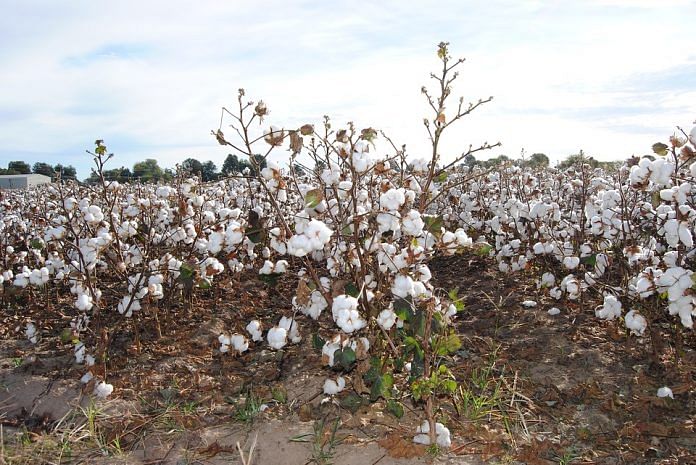Karachi: Pakistan has cut its cotton production estimate for this year as competition from other crops shrinks the planted area in the country’s biggest growing province, according to a government official.
The government reduced its target to 12.7 million bales of 170 kilograms apiece for the year through March from 15 million bales previously, the official said, asking not to be identified because of internal policy. Pakistan is the world’s fifth-largest grower, according to U.S. Department of Agriculture data.
While output is still forecast to be higher than last year, the revision will be a blow for Pakistan’s $13 billion textiles sector, which employs 10 million people, and accounts for about 8% of the economy and more than half foreign exchange earnings. The country is spending about $1.5 billion a year on cotton imports due to a shortage, said Ahsan Mehanti, chief executive officer of Arif Habib Commodities.
The target has been revised because competing crops like sugar, corn and rice are limiting the area under cultivation in Punjab, the official said. The estimate for the province has been cut to 7.9 million bales from 10.6 million bales.
Sugar Rush
Farmers have shifted to sugar cane from cotton because of higher government support prices, which have increased threefold in a decade. The nation’s sugar area surged 18% in three years to 1.34 million hectares in 2017-18, before slipping last year mainly due to water shortages.
Provinces set support prices for sugar cane to establish a minimum amount that farmers receive from mills.
After climbing to 14 million bales in 2014-15, cotton production is estimated to have declined to 9.9 million bales in 2018-19, the lowest in at least 17 years, mainly because of reduced acreage. The area has shrunk about 20% since 2014-15, according to government data.
Also read: Haryana joins ‘movement’ to defy GM crop ban, farmers get ready to sow HT cotton seeds
Locust Threat
This year’s cotton crop is facing another threat. A massive swarm of locusts has migrated from Iran to Pakistan. The government has deployed aircraft and spray-mounted vehicles to treat about 10,000 acres in Sindh province, Muhammad Hashim Popalzai, secretary of the food ministry, said last month. Authorities are still assessing the extent of the damage.
Pakistan is desperate to prevent a further decline in cotton output as it seeks to shore up the economy after securing this month a 13th bailout of about $6 billion from the International Monetary Fund. Cotton imports by the textile industry more than doubled in three years to 2017-18, mainly from the U.S. and India, according to central bank data.
Lower production of cotton not only crippled its export prospects, but instead caused hefty imports, according to the latest quarterly report of the State Bank of Pakistan.
“We are badly hurt,” said Asif Inam, vice chairman of All Pakistan Textile Mills Association. About 30 textile mills have shut down in the last five years partly due to poor availability of cotton, he said. -Bloomberg
Also read: What’s the fuss over the new variety of GM cotton that farmers are batting for



